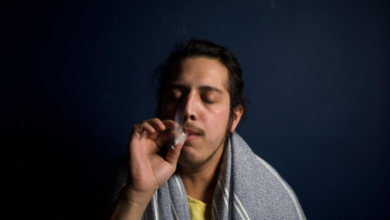The legal status of CBD in the Dominican Republic presents a complex landscape. Current regulations reflect a blend of recognition for CBD’s potential health benefits and uncertainty regarding enforcement. Consumers and importers face challenges in navigating these laws. The distinction between CBD and THC further complicates matters. As stakeholders push for reform, the future of CBD regulation remains in flux, prompting questions about compliance and legality that warrant further examination.
Overview of CBD Legislation in the Dominican Republic
Although the global perception of cannabidiol (CBD) has shifted towards acceptance and legalization, the legal status of CBD in the Dominican Republic remains complex and nuanced.
The country’s CBD history is marked by legal challenges, including ambiguous regulations and enforcement issues. Consequently, stakeholders face uncertainty, complicating efforts to navigate the evolving landscape and advocate for broader access to CBD products.
Understanding the Difference Between CBD and THC
The legal complexities surrounding CBD in the Dominican Republic necessitate a clear understanding of its relationship with another prominent cannabinoid: THC (tetrahydrocannabinol).
While CBD offers numerous benefits such as pain relief and anxiety reduction, THC effects can include psychoactivity and altered mental states.
Distinguishing these cannabinoids is crucial for navigating legal frameworks and understanding their respective roles in health and wellness.
Importing and Possessing CBD Products
Navigating the legal landscape of importing and possessing CBD products in the Dominican Republic requires careful consideration of existing regulations.
Current CBD regulations emphasize compliance with product safety standards, impacting both consumers and importers.
Individuals must ensure that any products brought into the country meet these criteria to avoid potential legal issues, highlighting the importance of understanding local laws regarding CBD.
Future Prospects for CBD Regulation in the Dominican Republic
As the global demand for CBD products continues to rise, the Dominican Republic faces mounting pressure to reevaluate its regulatory framework surrounding these substances.
With significant market potential, stakeholders advocate for legislative changes that could align local laws with international standards.
Such reforms may enhance economic opportunities, improve consumer access, and promote responsible usage, reflecting a broader shift towards embracing the benefits of CBD.
Conclusion
In conclusion, the legal landscape surrounding CBD in the Dominican Republic resembles a winding river, where clarity is often obscured by regulatory bends and turns. As stakeholders push for reform and a more defined framework, the potential for growth in the CBD market remains contingent upon evolving legislation. Understanding the nuances of current laws and compliance will be crucial for consumers and businesses alike, as they navigate this complex and developing environment.





